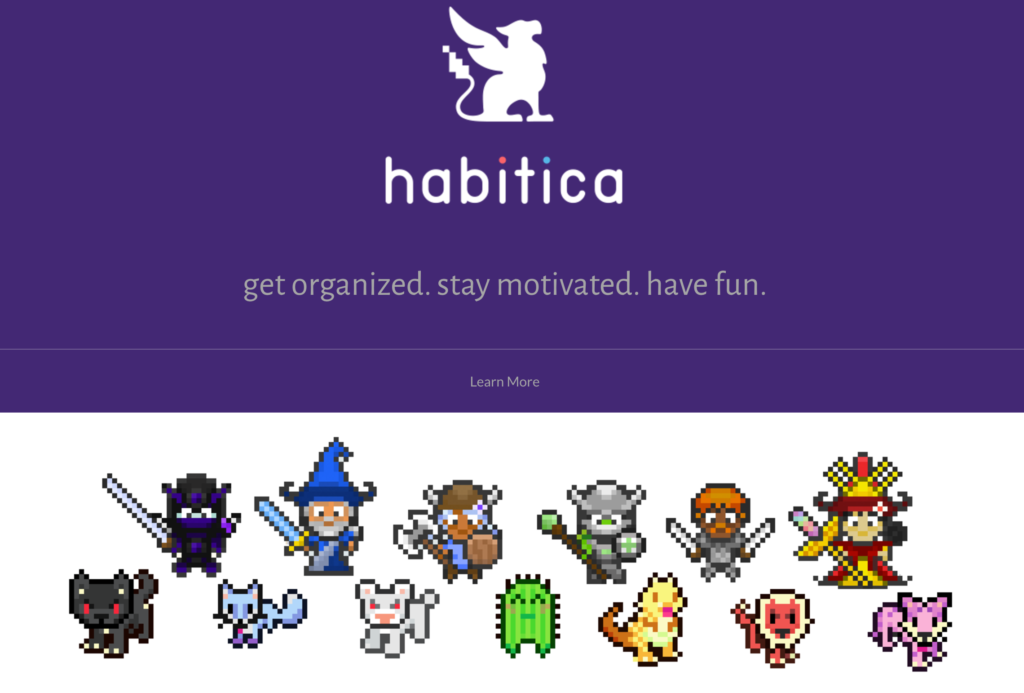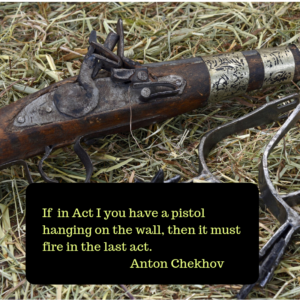 One thing that was fascinating about this year’s Nebulas was the chance to meet so many people in the publishing industry, including a couple of the founders of Habitica, Vicky Hsu and Siena Leslie, who were on a panel about avoiding distractions – a key skill for a writer.
One thing that was fascinating about this year’s Nebulas was the chance to meet so many people in the publishing industry, including a couple of the founders of Habitica, Vicky Hsu and Siena Leslie, who were on a panel about avoiding distractions – a key skill for a writer.
Habitica is a motivational game. It lets you gamify your daily tasks and to-do list, turning them into challenges you face in the game. As you complete tasks, you gain levels and items in the game, giving you an extra push to get things done. You can also set it up so you lose points for doing things, if there’s habits you want to avoid. There’s a social aspect; you can join parties and guilds in order to share your progress with friends.
I am always on a quest for a method that will help me stay organized. Various systems have come and gone, some more successful than others, and I’ve learned a few things about how to make such systems more effective. As I share how I am using Habitica, I’ll include some insight into how that knowledge shapes that use. I’ve been logging into it consistently for two weeks now, and I believe it’s going to stick, because I’m finding it very effective for a) nudging me to do things, b) helping me remember stuff, and c) motivating me to use free time and options (like snacks) better.
Core Component: Dailies, Habits, and To-dos
The key to Habitica is its tasks, which fall into three categories: dailies, habits, and todos.
Dailies are a key component. For people familiar with MMORPGs, this concept will be very familiar. They are things you can do once a day that earn you experience. These are effective because “” for me at least “” I get more done doing small chunks consistently than with sporadic sustained bursts. For example, someone learning to play a musical instrument is going to do better with shorter, more frequent practice sessions than one long sustained session. You can get complicated with dailies, but the only things I actually use much is difficulty settings (trivial/easy/medium/hard). The harder the task, the more experience /gold it yields. And they are mandatory – if you miss a daily, you lose hit points.
Here’s my dailies:
- Checking the calendar and planning my day. This means looking at the calendar on my PC as well as Google calendars for the various roles I’m currently juggling. One reason I’ve implemented this is that in the last half year I’ve missed a bunch of stuff because I wasn’t in the habit of doing this. With it as a morning task, it’s something I can do quickly and get checked off. This is probably one of the smartest habits anyone can get into, and so making it a regular part of my memory makes me much more effective.
- Writing. My goal of 2000 words is set to HARD difficulty level because it’s a top priority plus, well, it’s hard. At the same time I’ve got an accompanying habit set up as trivial: 250 words. Each time I get a chunk of words done, therefore, I can achieve a pellet’s worth of gratification without feeling like I’m padding my count too much, and build towards (hopefully) being able to check off that 2k word goal. This also means even if I don’t hit my goal, I do get some reward for getting partway toward it. This was originally 500 word chunks, which wasn’t as effective was I’d hoped, so I’ve changed it to 250 words. This is much more doable, and is an example of how you can “chunk” your work in order to make it more manageable. I’m more likely to sit down and knock off a few hundred words than 2,000 in one sitting. Doing it this way means I have some reward for my effort even on days when I don’t hit the 2k target, while I have additional reason to hit that goal (and even some to go past it.)
- Basic self care stuff. People suffering from depression know that it’s easy to mope around and forget to do some of the stuff that will help you feel better, like food, showers, and getting out into the sunlight. I’ve got one task here, easy level, with the basics that I must hit as a checklist. I’ve pulled out “Take my medicine” as a solo easy level task because this is something I am perpetually bad about and I really want to get on the stick about it. This has been surprisingly successful.
- 30 minutes of housework. Like the words, I’ve split this into smaller chunks, because I am much more likely to go work in the kitchen for 5-10 minutes if I can get some points for it, and thus I pick away at the overall task. As I continue fine-tuning this, I may add a checklist that will remind me to do quick decluttering sweeps and anything else that really should get done every day, but since the house is usually pretty clean, it’s just a matter of staying on top of it. Can I run the household effectively on 3.5 hours a week? Undoubtedly not and I’ll end up putting in two or three times that, but this means that I keep on top of things on a daily basis.
- Exercise. Each of the components of my routine is a separate task, medium level, which I think I will drop to easy at some point. Mainly I want to make sure I get my daily walk in, do some stretches (Steven Barnes turned me onto this great book), and a little strength training, because I am a big wimp, and would like to be less of one.
- Self-improvement, mainly 10 minutes of language drill each in Spanish and Mandarin. I know from experience that doing it daily will work while cramming isn’t particularly effective (or likely). At the same time extra practice set up as habits in order to encourage me to do more than the basic daily allotment if there’s time. I use Duolingo for Spanish drill, combined with reading fiction in Spanish; for Mandarin, I’ve got Rocket Chinese and an iPad game. And an additional 10 minutes of practicing at something to build my dexterity.
- Something outside my comfort zone. This doesn’t have to be big, although the recent shark cage dive was definitely a good example. But it can mean initiating an interaction I’ve been avoiding. It does have to be outside my normal comfort zone, though. For example, while smiling at or saying hi to a stranger might be a good one for my shyer friends, it’s something I do anyway. Pick things that you need to be reminded to do.
Habits are things you should do more but a, don’t necessarily need to do every day and b, might do more than once. For example, here’s some of mine:
- Eat a fruit/vegetable. This makes me more likely to grab a healthy snack rather than chips or candy.
- Promotional tasks. I’ve got reminders to promote my Patreon, the Rambo Academy, and my live classes. This nudges me to be better about tweeting, posting on FB, and other social media venues.
- 50 pages of nonfiction reading. This nudges me to get through a particular section of my to-be-read pile and not just read novels.
- The aforementioned 250 words written (this must be fiction), which kicks me to be productive even after I’ve knocked off my requisite 2,000.
- I’ve included some other tasks to encourage me to do them on a regular basis, such as posting for Patreon supporters, clearing emails, sending out submissions, editing 50 pages, etc.
- Watching television is a negative habit (because I want to trim down on how much I watch), so each half hour costs me experience and points.
Todos are one-time tasks. This functions for me as a combo of todo list plus kick in the butt to get those items knocked off the list. Right now the list has a couple of appointments I need to make (due by the end of this week), two manuscripts I should read, a blurb to write, and several SFWA projects that I need to nudge along. One of the habits I’m working at is, when looking at an e-mail, either answering it immediately or turning it into a todo here that has an expiration date. This does nothing to address the pile of past todos, but one useful to-do, due Sunday evening, is looking over the week to come and setting up todos for things that I want to get accomplished that that week that aren’t already covered by a daily, habit, or existing to-do.

Why Habitica Works For Me
First and foremost, it’s a game, and I am a game addict. Gamify just about anything and I’m there. Habitica has random little rewards as well as reward for steady effort, set up in an addictive and gratifying way. It’s fun. Because I’m at the keyboard so much, Habitica is easy to access, but even when I’m not, there’s a mobile app that I’ve installed on my phone.
The game rewards me with coins that I can spend in the game or that I can spend outside the game on rewards I’ve decided for myself, such as buying a new book, which costs me ten gold on Habitica.
It also gets me to create reminders to myself in the form of todos, as well as provides options for odd moments. Since I work at home, I often get up and roam around the apartment, thinking about a story. Habitica encourages me to spend that time in the kitchen doing 5 minutes worth of tidying up, or taking a break for language drill.
There’s a strong social aspect to Habitica, including being able to group up with people and undertake quests in order to find additional items and pets. This encourages accountability; one of the things I’ve found about these systems is that if you know other people can see your progress (or lack thereof), you are more likely to follow through.
One thing I’ve been cautious about is overloading the game and tracking everything obsessively. So each week, as part of that planning session, I look to see if there’s anything I’m not doing. If so, do I need to make the reward greater? Or should I just remove it from my slate if it’s something optional? After that, I can add one, and only one, thing. This week I’ve thinking I’ll add a habit of taking a book or three out with me on walks in order to put them in some of the local Little Free Libraries; that will encourage me to do some mild decluttering and to work through my massive physical To-be-read pile.
Is Habitica going to work for everyone? Obviously no solution fits all. I’ve found it effective, and people with the same flaws I have (distractible, forgetful, and prone to procrastination) may do so as well. If you do and you’re an F&SF writer, there’s an Inkslingers Guild on there that’s fun, run by Mary Robinette Kowal. And feel free to let me know if you’re there so I can invite you to join my party – right now Sandra and I are questing to kill the Feral Dust Bunnies.




 One of playwright Anton Chekhov’s most quoted maxims is this: If in Act I you have a pistol hanging on the wall, then it must fire in the last act. If you establish an expectation in the reader, particularly a strong expectation, you must fulfill it.
One of playwright Anton Chekhov’s most quoted maxims is this: If in Act I you have a pistol hanging on the wall, then it must fire in the last act. If you establish an expectation in the reader, particularly a strong expectation, you must fulfill it. The conversation has been loaded here, midway through the story:
The conversation has been loaded here, midway through the story:



2 Responses